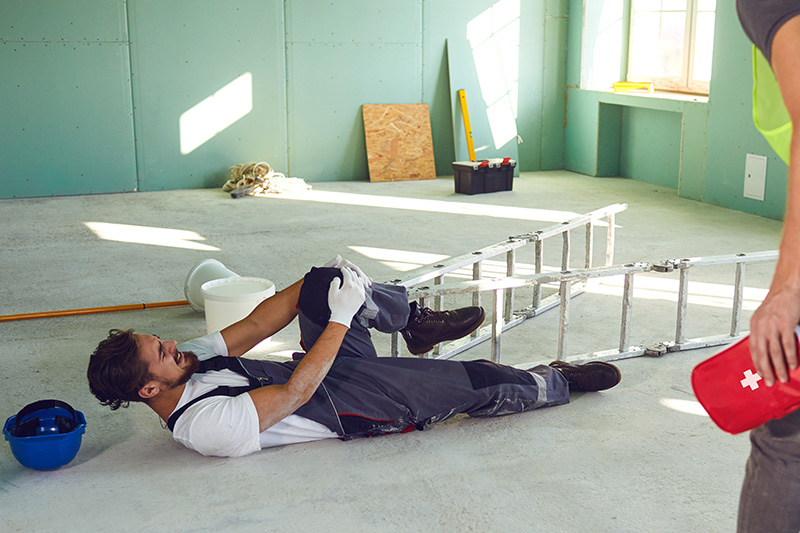It’s another normal routine workday, but then the unexpected happens. You are injured at work. Do you know how or where to get help to compensate for your injuries? Should you find a workers’ compensation lawyer?
If you have been injured on the job, in most cases it is considered a workers’ compensation injury and is eligible for a claim. This involves you being entitled to be compensated for lost wages, your medical expenses, and, in some cases, re-education expenses. While the process may become a little bit complicated if you are new to it, a workers’ compensation lawyer in Wisconsin will ensure you are fairly compensated for your injuries.
Read on to find out what workers’ compensation is, examples, and how the claim works.
WHAT IS WORKERS’ COMPENSATION?
Workers’ compensation, also referred to as “workers’ comp,” is a form of employer insurance coverage that pays benefits to employees who become injured or ill due to their job. The benefits may include partial wage replacement for the period the worker cannot work, reimbursement for healthcare services, and occupational therapy.
However, to access these benefits, both the worker and the employer must follow certain steps to ensure the injury is compensable. The claim should also be legitimate, which means it should be work-related.
EXAMPLES OF WORKERS’ COMPENSATION CLAIMS
Compensation claims vary according to the situation, but some types of accidents are much more common than others. To help you understand more about how and why they happen, here’s a list of the five most common workers’ compensation Wisconsin injuries filed each year.
Overexertion
Overexertion is the straining of your body or putting too much pressure on yourself. Big lifts, throws, or pushes can injure a muscle or force a joint beyond its normal range of motion. This mostly occurs when you overwork yourself. Injuries caused by overexertion are most common in factory jobs where heavy lifting is involved or where there’s physical labor.
Slips, falls, and trips
The majority of all slips, falls, and trip claims occur when employees slip on wet floors or snowy walkways. If injured in a slip and fall accident, report it immediately to your employer. Workers’ compensation Wisconsin rules require that you report the incident to the management before the statute of limitation runs out, or else it may result in the rejection of your claim.
Repetitive Strain Injury
A Repetitive Strain Injury (RSI) is an overuse injury caused by repeating the same motion/movement for long periods of time. RSI in an upper body/ limbs disorder and is often associated with computer work.

Electrocution
A high-voltage electric shock can result in cardiac arrest, nerve damage, brain injury, and severe burns. The most common victims are crane operators, truck drivers, carpenters, electricians, and utility workers.
Struck by objects
While very simple, this injury occurs when something falls from a higher level onto an employee. It is very common in construction zones when roofing and flooring are not yet done and materials are being lifted to upper areas. When falling from great heights, heavy objects can cause serious or even fatal injuries.
Workplace violence
Many American workers experience workplace violence each year. According to OSHA, social service and healthcare workers such as visiting nurses, probation officers, and psychiatric evaluators are all at a higher risk of workplace violence. Police officers and security guards are included too.
HOW DOES THE WORKERS’ COMPENSATION CLAIM PROCESS WORK?
If you have been injured at work or have a work-related medical condition that requires medical treatment, follow these steps to file a workers’ compensation Milwaukee claim:
1. Report the injury
The first step in a workers’ compensation claim is to report the injury to your employer immediately. Ensure you report the injury within 30 days to avoid rejection of the case.
2. Seek medical treatment
Discuss with your employer the right to seek medical treatment for the injury and clarify any rules for the level of treatment you will receive.
3. Document your injury
The Wisconsin Department of Workforce Development (DWD) explains that complications may arise in the compensation claim and the number of benefits later determined by the specific facts of your case. It is therefore important that the injured worker keep the records from the beginning.
4. Calculate your workers’ compensation benefits
You need to ensure you accurately calculate your benefits. Count the number of days you are unable to work and keep your employer informed on the level of diagnosis and your doctor’s orders regarding laying off work or working on lighter job tasks.
5. Negotiate a settlement
Start focusing on resolving your compensation claim after fully documenting your injury and calculating the benefits you are entitled to recover, start focusing on resolving your compensation claim. The process may be a little bit complicated and daunting, so it is advisable to hire a workers’ compensation lawyer to help you with it.
CONTACT A WORKERS’ COMPENSATION LAWYER
If you have filed a workers’ compensation claim, your employer may deny it. The reason is that there are many defenses available to employers, and they might use each of them to avoid paying out benefits. You need an experienced lawyer on your side to help you seek the benefits you deserve.
Bykhovsky Law has broad experience in representing injured workers and guarantees the best results for our clients. Contact us today to schedule a free consultation.


